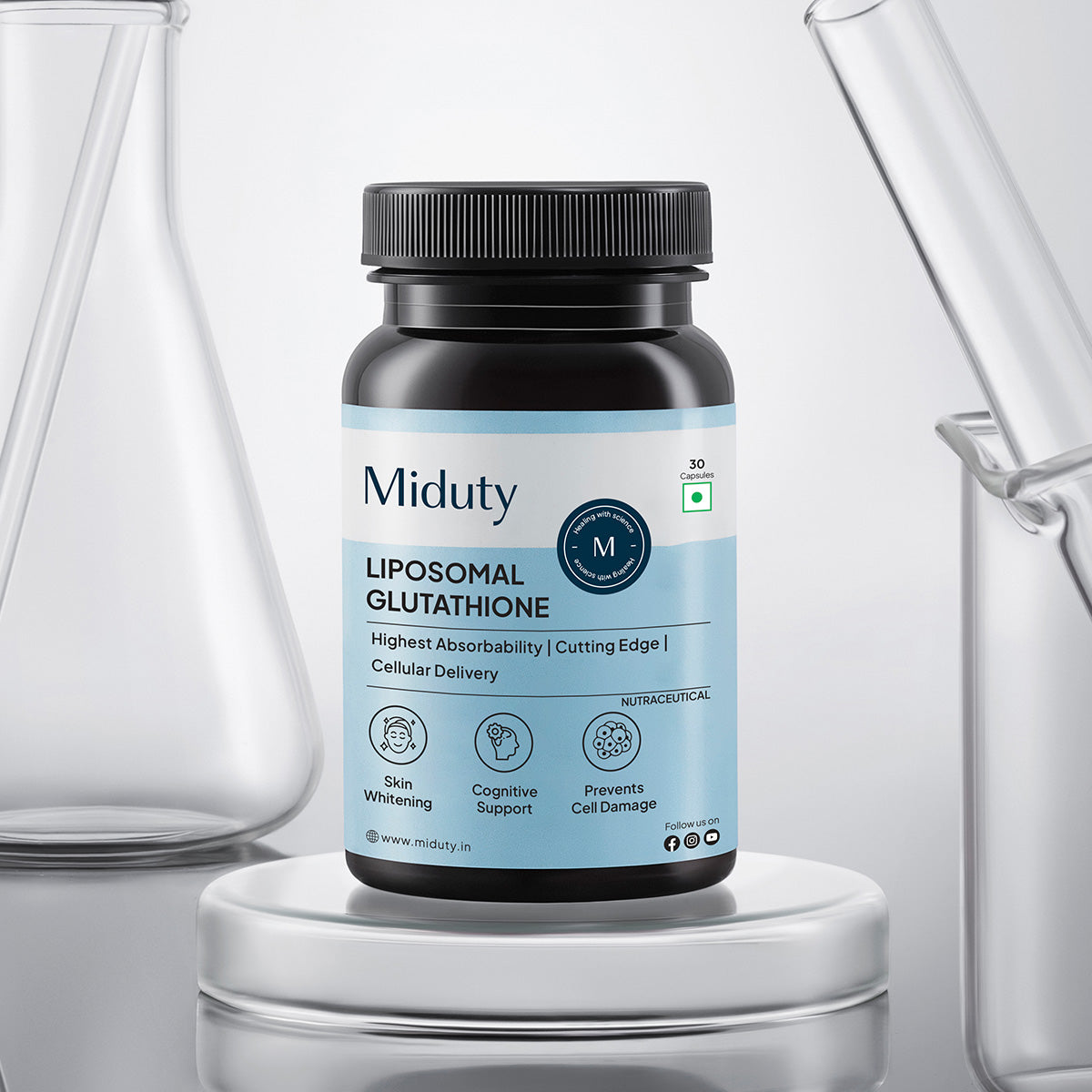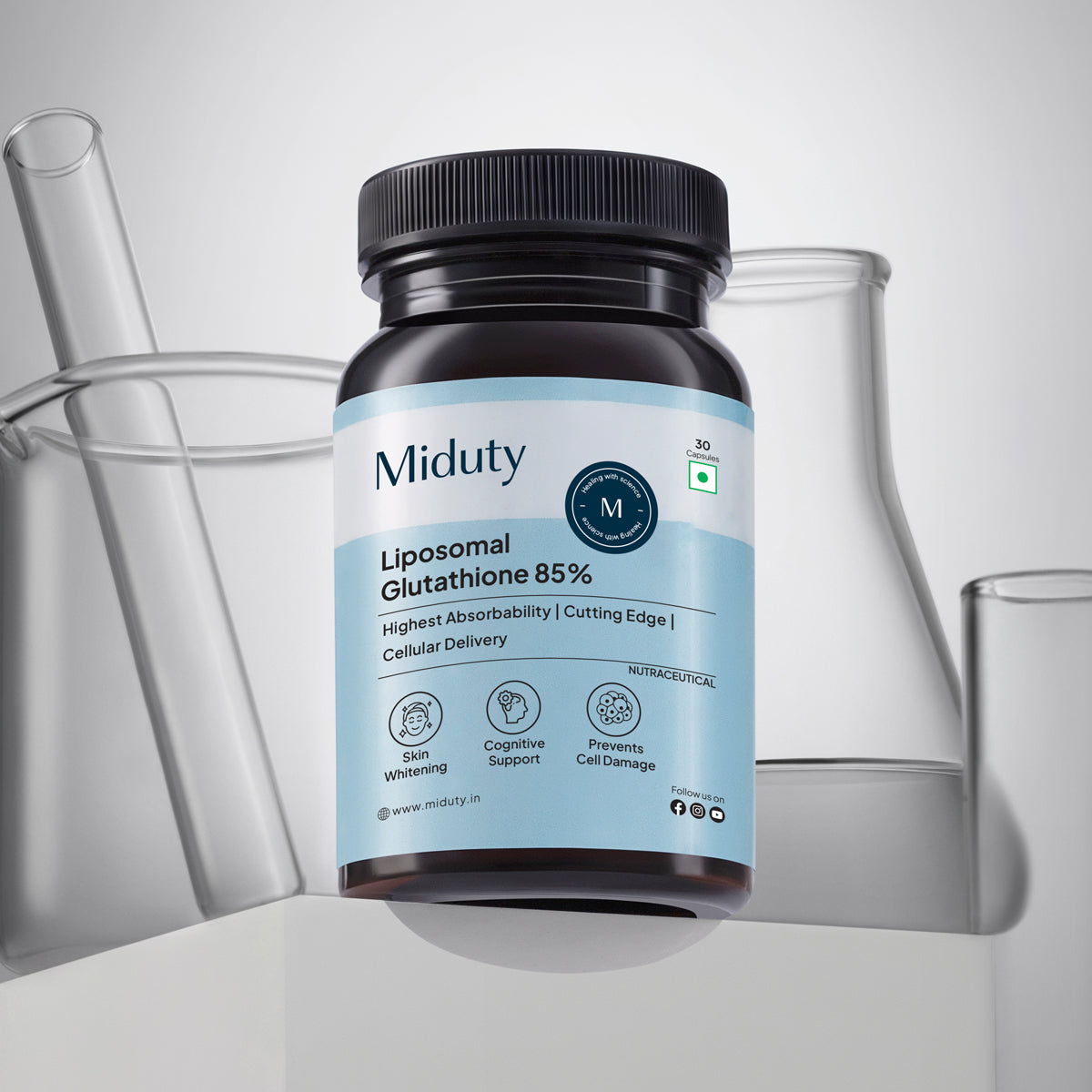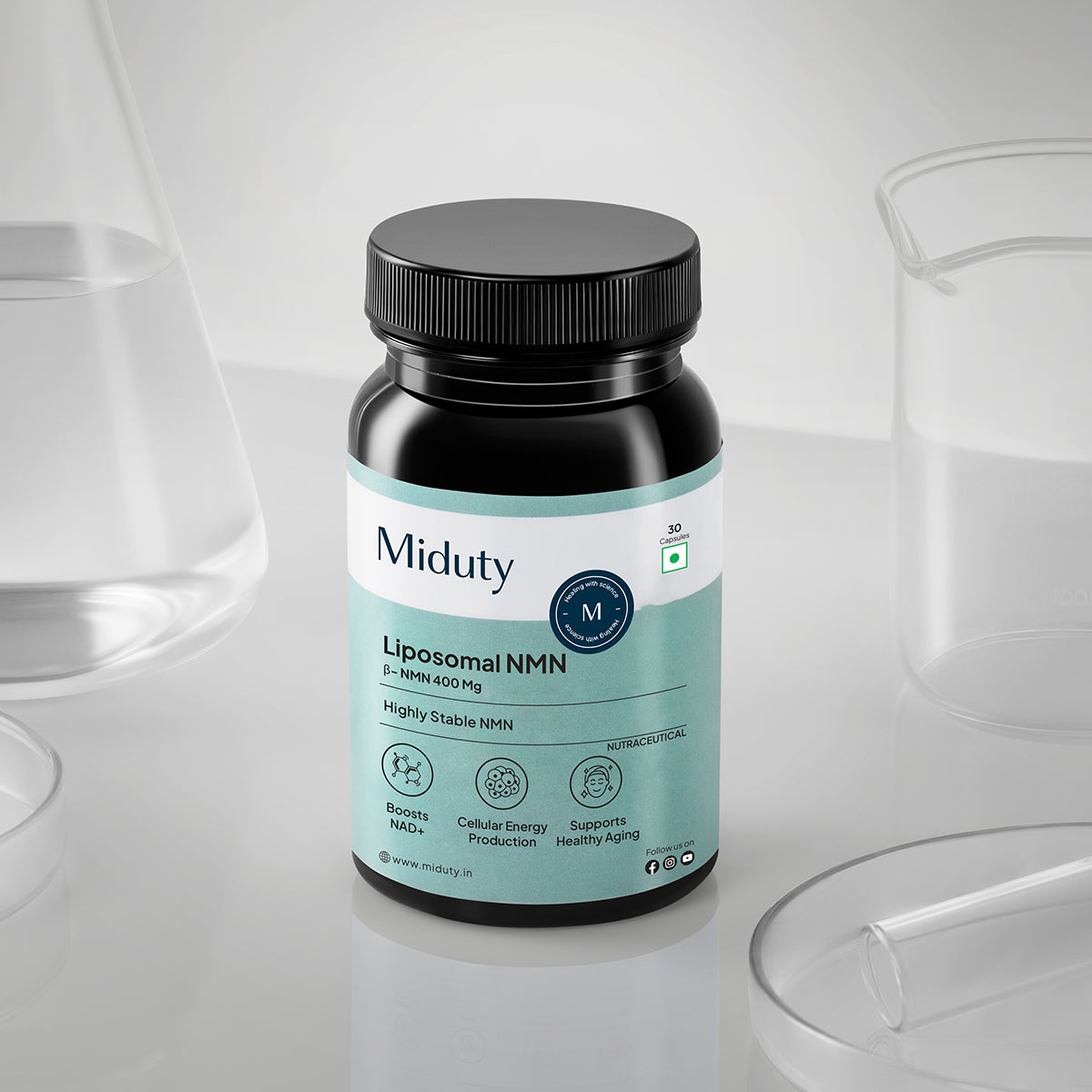
Vegan Omega vs Fish Omega: Differences & Which Is Better?
Have you ever stood in the supplement aisle, staring at the endless rows of omega-3 bottles vegan, algae, fish, krill and wondered… What's actually the difference? If yes, you're definitely not alone.
Most people know omega-3 fatty acids are essential for heart, brain, and overall health, but choosing the right source can feel overwhelming. Some prefer fish oil because it's "traditional," while others lean toward vegan omegas for ethical or digestive reasons. And then there are those who just want the facts so they can pick the option that truly works best for their body.
If that sounds like you, this blog will simplify everything.
Let's break down vegan omega vs fish omega, compare their benefits, purity, sustainability, and effectiveness—so you can confidently choose the one that fits your lifestyle and health goals.
What Is Vegan Omega?
Vegan omega refers to omega-3 fatty acids that come from plant-based sources—with algae being the most potent and direct source. Unlike fish oil, which gets its omega-3 content from fish that eat algae, vegan omega sources cut out the "middle fish" and deliver omega-3 straight from the original producer.
Common vegan omega-3 sources:
- Algae oil (rich in DHA and EPA, same as fish oil)
-
Flaxseed
-
Chia seeds
-
Hemp seeds
-
Walnuts
-
Seaweed
While nuts and seeds contain ALA (a precursor to EPA and DHA), algae-based supplements provide EPA and DHA directly, making them the plant-based equivalent of fish oil.
Benefits of Vegan Omega
1. Direct, clean source of EPA and DHA
Algae oil contains the same active omega-3 fatty acids—EPA and DHA—as fish oil, but without the risk of heavy metals like mercury, dioxins, or other ocean contaminants. [1] Because it's grown in controlled environments, algae oil offers a consistently pure and reliable omega-3 source. This makes it ideal for those who want the benefits of omega-3s without worrying about environmental toxins.
2. Ideal for vegans, vegetarians, and those with fish allergies
Anyone avoiding animal products (or who simply dislikes fishy burps!) can take vegan omega without compromise. It provides an inclusive option for people with dietary restrictions, allergies, or ethical concerns. Even individuals following a plant-forward lifestyle can meet their omega-3 needs easily.
3. Environmentally sustainable
Algae cultivation uses significantly less water, energy, and environmental resources than commercial fishing. It also avoids disrupting marine ecosystems. As demand for omega-3s grows, algae offers a long-term, eco-friendly solution that reduces pressure on ocean life.
4. Gentler on the stomach
Many people report that algae-based omega supplements are easier on digestion and cause fewer issues like reflux or aftertaste compared to fish oil. This is because algae oil is naturally mild and doesn't contain the proteins or compounds that sometimes irritate the digestive tract. It's a great choice for individuals with sensitive stomachs. [2]
5. Better absorption and bioavailability
Newer research suggests high-quality algae oils can be just as bioavailable as fish oil. Some studies even show improved absorption due to cleaner extraction processes. With fewer impurities and a simpler molecular profile, algae omega may be utilized more efficiently by the body.
6. No fishy smell or aftertaste
A major win for anyone who refuses to burp fish for hours! Algae oil has a neutral flavor profile, making it much more pleasant to take daily. This can lead to better consistency and long-term adherence to omega-3 supplementation.
What Is Fish Omega?
Fish omega, commonly known as fish oil—is extracted from fatty fish such as salmon, anchovies, sardines, and mackerel. These fish get their EPA and DHA by eating algae, which is why fish oil is naturally rich in these essential fatty acids. Fish oil has been the most researched omega supplement for decades and has a strong reputation for supporting heart and brain health.
Benefits of Fish Omega
1. Rich in EPA and DHA (clinically studied forms)
Fish oil is one of the most abundant natural sources of these two powerful omega-3 fatty acids known for:
- lowering inflammation
- supporting heart health
- improving triglyceride levels
- enhancing brain and eye function
2. Widely available and affordable
Fish oil supplements have been on the market for decades, making them easy to find and often less expensive than vegan alternatives. Their mass production and strong market demand help keep prices competitive. This makes fish oil a budget-friendly option for individuals seeking reliable omega-3 supplementation.
3. Backed by decades of clinical research
Most major omega-3 studies have been conducted on fish oil, giving it a large base of scientific support. Its benefits have been documented across various fields—including cardiology, neurology, and inflammatory health. This long-standing research history gives many consumers and healthcare professionals confidence in its effectiveness. [3]
4. High potency options
Concentrated fish oils can provide very high levels of EPA and DHA per serving, useful for individuals who need therapeutic doses. These concentrated formulas are especially beneficial for those managing specific health conditions such as high triglycerides or chronic inflammation. With fewer capsules needed to reach higher dosages, potency becomes a major convenience factor.
5. Supports brain and heart health
Fish oil has been linked to improved cognitive function, reduced inflammation, and cardiovascular protection. EPA and DHA play crucial roles in maintaining brain cell integrity and supporting healthy blood lipid levels. This makes fish oil a popular choice for people looking to proactively support long-term wellness. [4]
Vegan Omega vs Fish Omega: Comparison Table
|
Feature |
Vegan Omega (Algae Oil) |
Fish Omega (Fish Oil) |
|
Source |
Algae (plant-based) |
Fatty fish (salmon, anchovy, sardine) |
|
EPA/DHA Content |
Moderate to high |
High (often higher per dose) |
|
Purity |
Naturally free of ocean contaminants |
Must be purified; risk of heavy metals/microplastics |
|
Sustainability |
Highly sustainable and eco-friendly |
May contribute to overfishing |
|
Digestibility |
Gentle on stomach, no fishy burps |
Possible fishy aftertaste or burps |
|
Allergy-Friendly |
Safe for vegans and fish-allergic people |
Not suitable for those with fish allergies |
|
Environmental Impact |
Low |
Moderate to high |
|
Price |
Higher |
Usually more affordable |
|
Clinical Research |
Growing rapidly |
Extensive, decades-long research |
Which One Is Better: Vegan or Fish Omega?
The answer depends on your health needs, ethics, and lifestyle—but here's a simplified conclusion:
Choose Vegan Omega if:
- You want a clean, contaminant-free source.
- You follow a vegan or vegetarian lifestyle.
- You experience digestive issues with fish oil.
- You prioritize environmental sustainability.
- You dislike fishy burps or aftertaste.
Choose Fish Omega if:
- You want the most affordable option.
- You prefer supplements with long-term clinical research history.
- You need very high doses of EPA/DHA and want potent concentrations.
A Krill Omega supplement powered by triple-strength salmon fish oil, Antarctic krill oil, EPA, DHA, and astaxanthin, delivering a strong blend of essential omega-3 fatty acids.
Conclusion
Fish omega is widely available and affordable because it has been on the market for decades, making it easy to find and budget-friendly. It's also backed by extensive clinical research, with most omega-3 studies focusing on fish oil, giving it strong scientific credibility. Another advantage is its high potency—many fish oil supplements offer concentrated levels of EPA and DHA, making them ideal for people who require therapeutic doses or want maximum benefits in fewer capsules. Additionally, fish omega is well-known for supporting brain and heart health. Its EPA and DHA content helps reduce inflammation, improve cognitive function, and promote better cardiovascular wellness, making it a reliable choice for long-term health support.
Frequently Asked Questions on Vegan Omega vs Fish Omega -
Q1 - Is vegan omega-3 as good as fish?
If the vegan Omega-3 you're choosing is algae-based, then the difference from fish oil is minimal. Algae supplements provide almost the same DHA and EPA levels as fish oil and deliver comparable benefits for heart, brain, and joint health.
Q2 - Which omega-3 is better, veg or non-veg?
Non-veg sources of omega-3, such as fatty fish, naturally provide EPA and DHA in their active forms. In contrast, veg sources like flaxseeds and walnuts offer ALA, which the body has to convert into EPA and DHA, a process that happens with low efficiency.
Q3 - What is vegan omega good for?
Like fish oil, vegan omega-3 oils also support heart health. They may help lower blood pressure, reduce triglycerides, and improve overall cholesterol levels, which together can contribute to a reduced risk of heart disease.
Q4 - Who cannot take omega-3 capsules?
Fish oil supplements can interact with certain medications and other supplements. Avoid taking them without your doctor's approval if you're on any medication especially blood thinners or if you have chronic conditions like diabetes, heart, kidney, or liver disease, or any pancreatic disorders.
Q5 - Can vitamin D and omega-3 be taken together?
Yes, you can take omega-3 and vitamin D together. They don't interfere with each other and may actually complement one another by supporting inflammation control, heart health, and immune function. Omega-3s may also help improve the absorption of fat-soluble vitamins like vitamin D.
References











